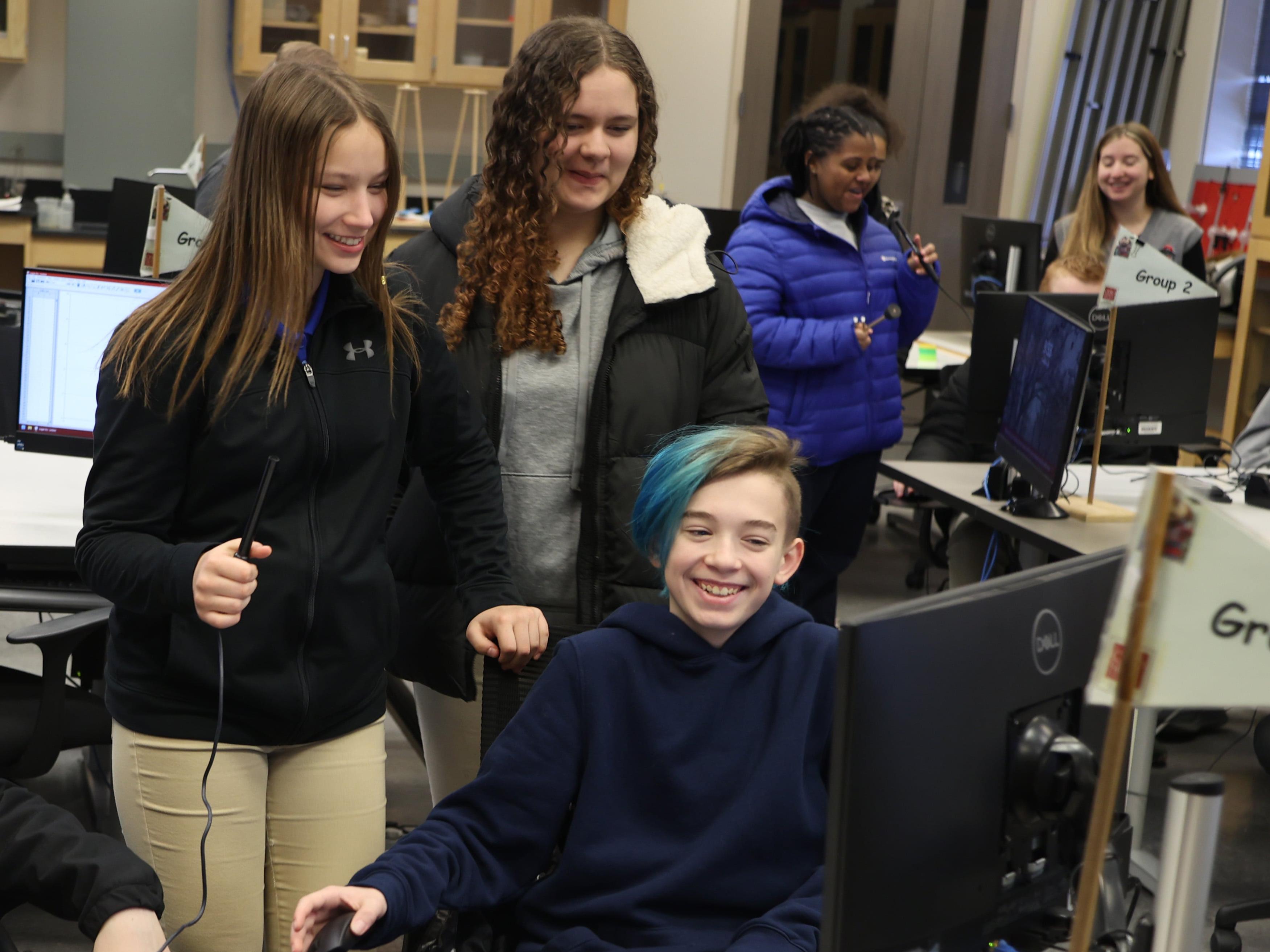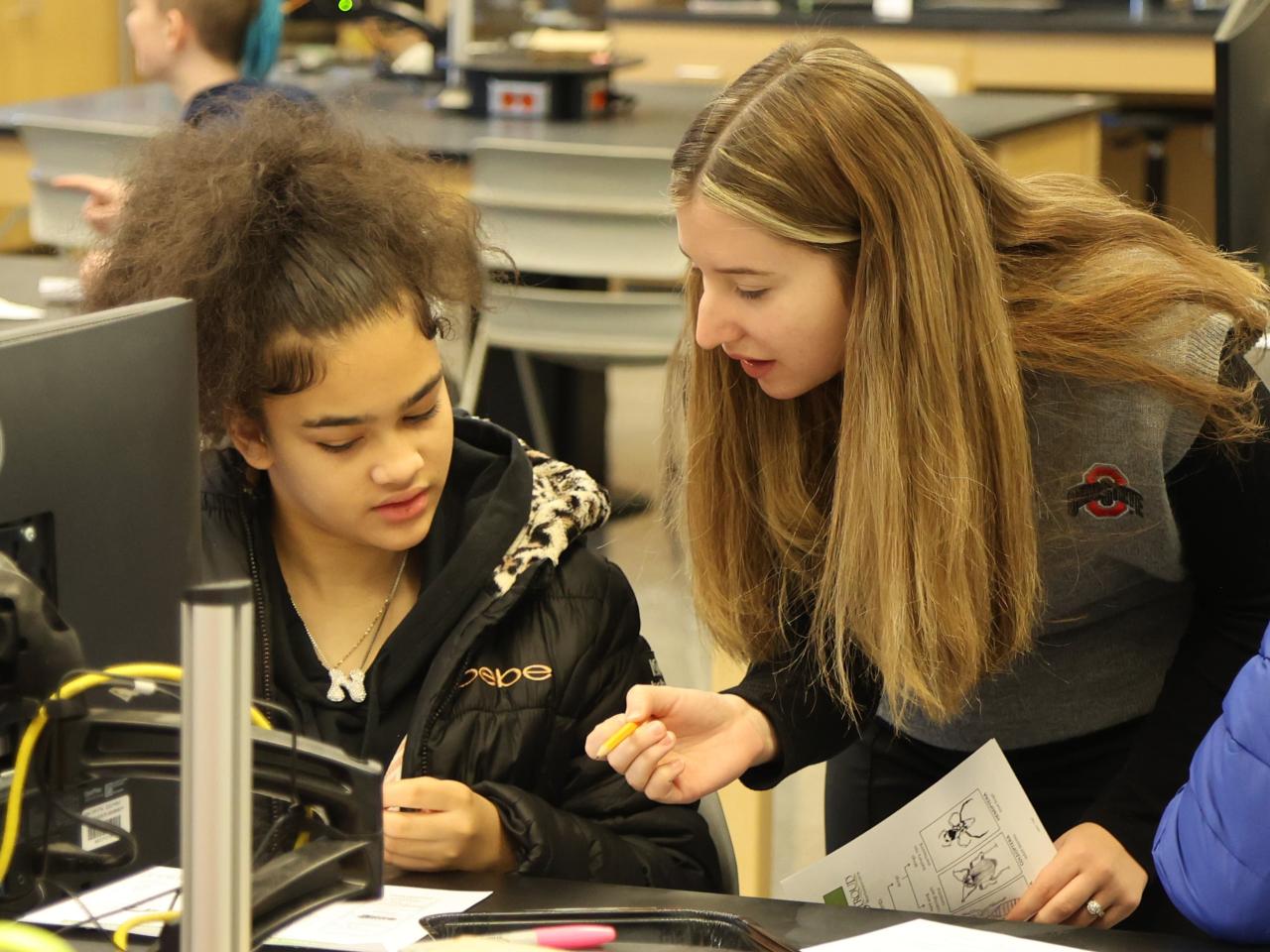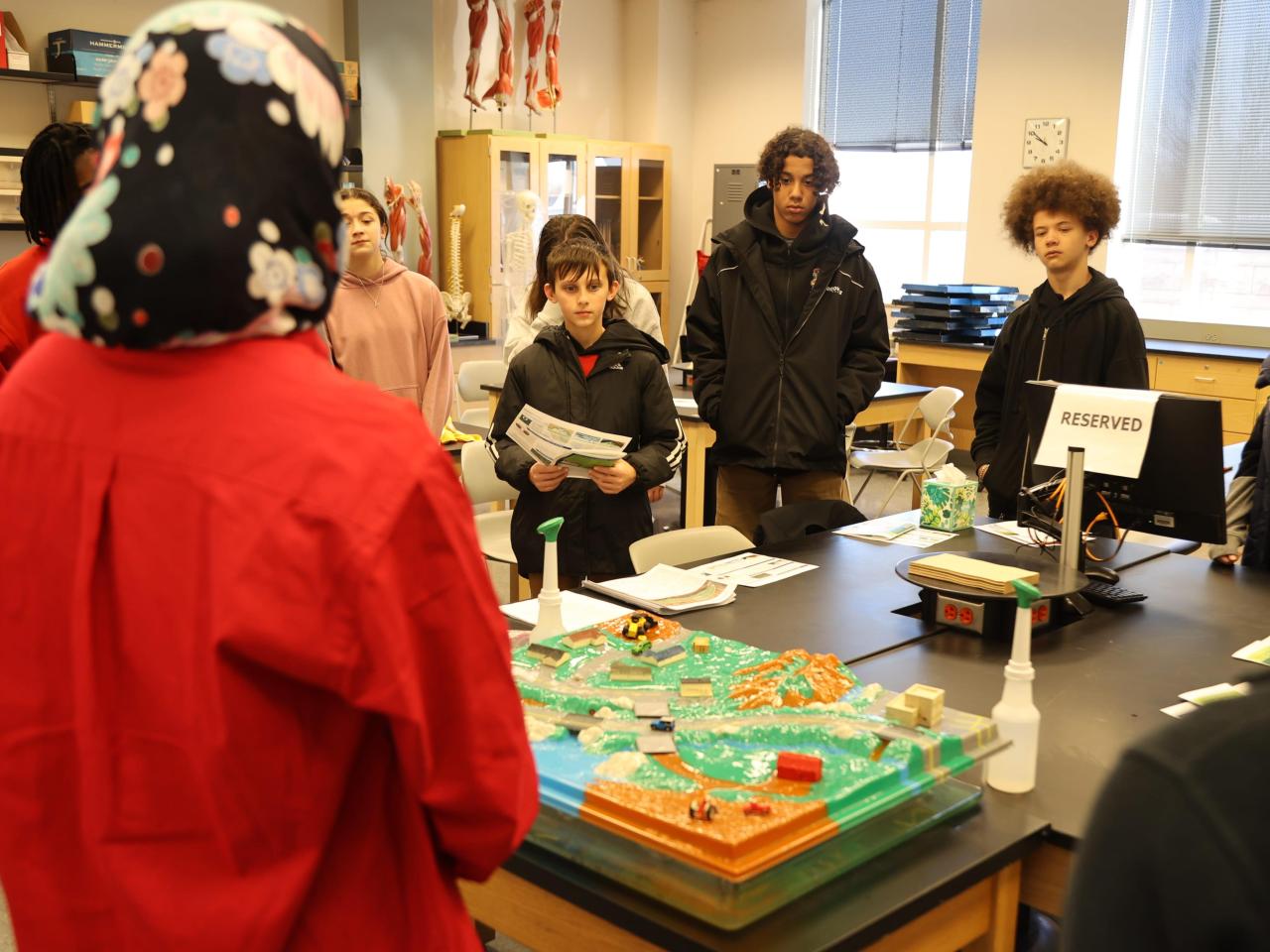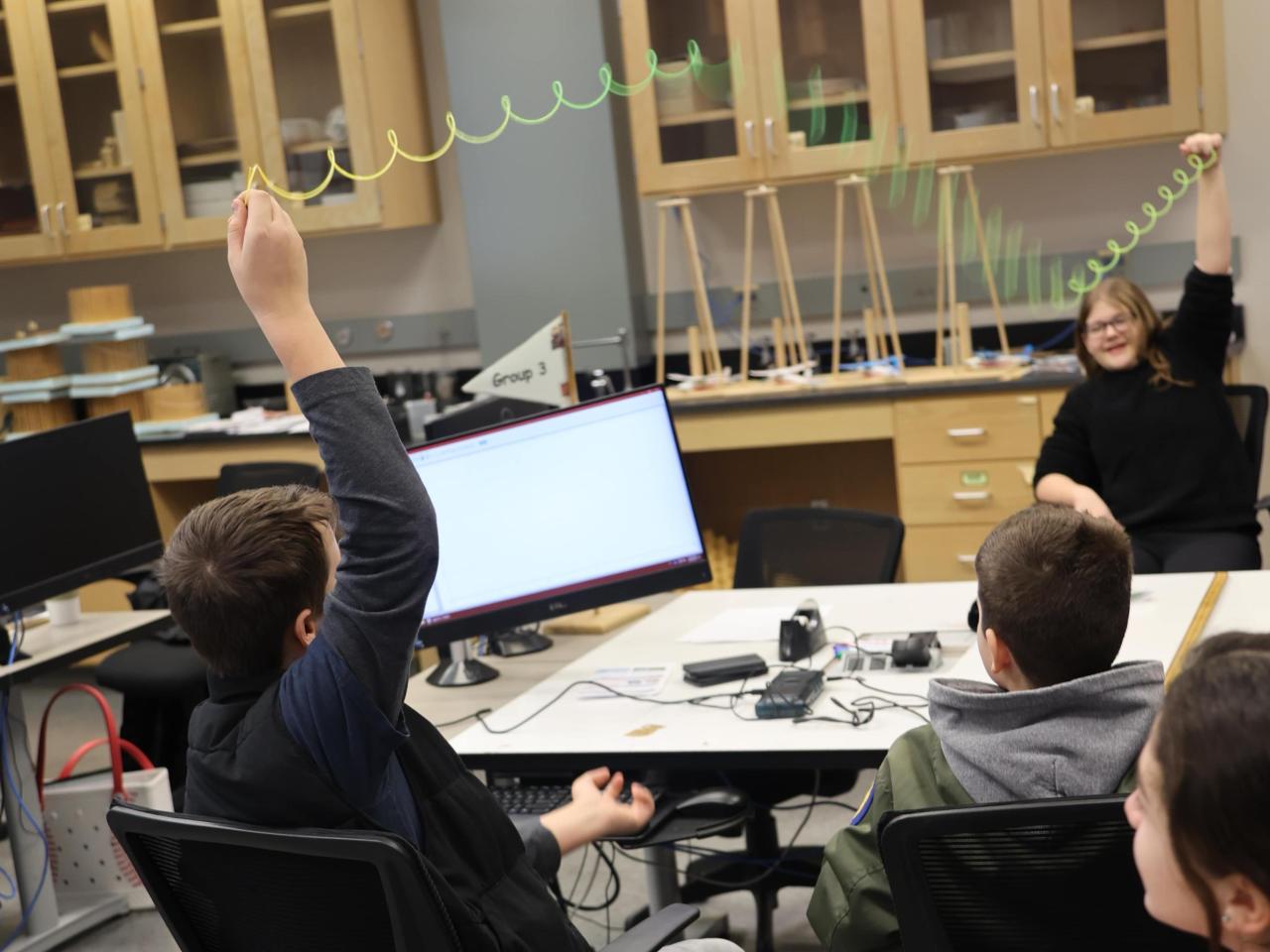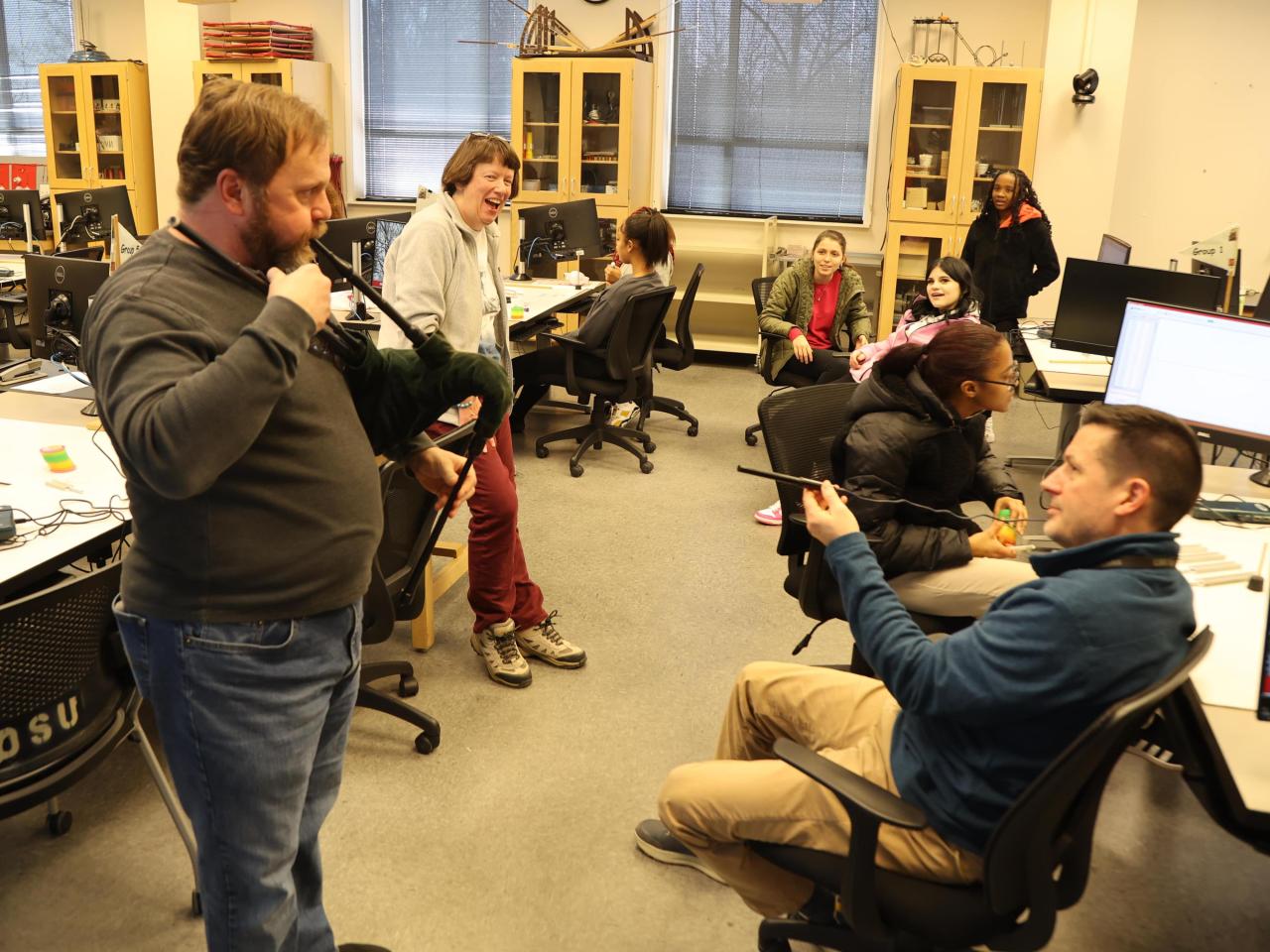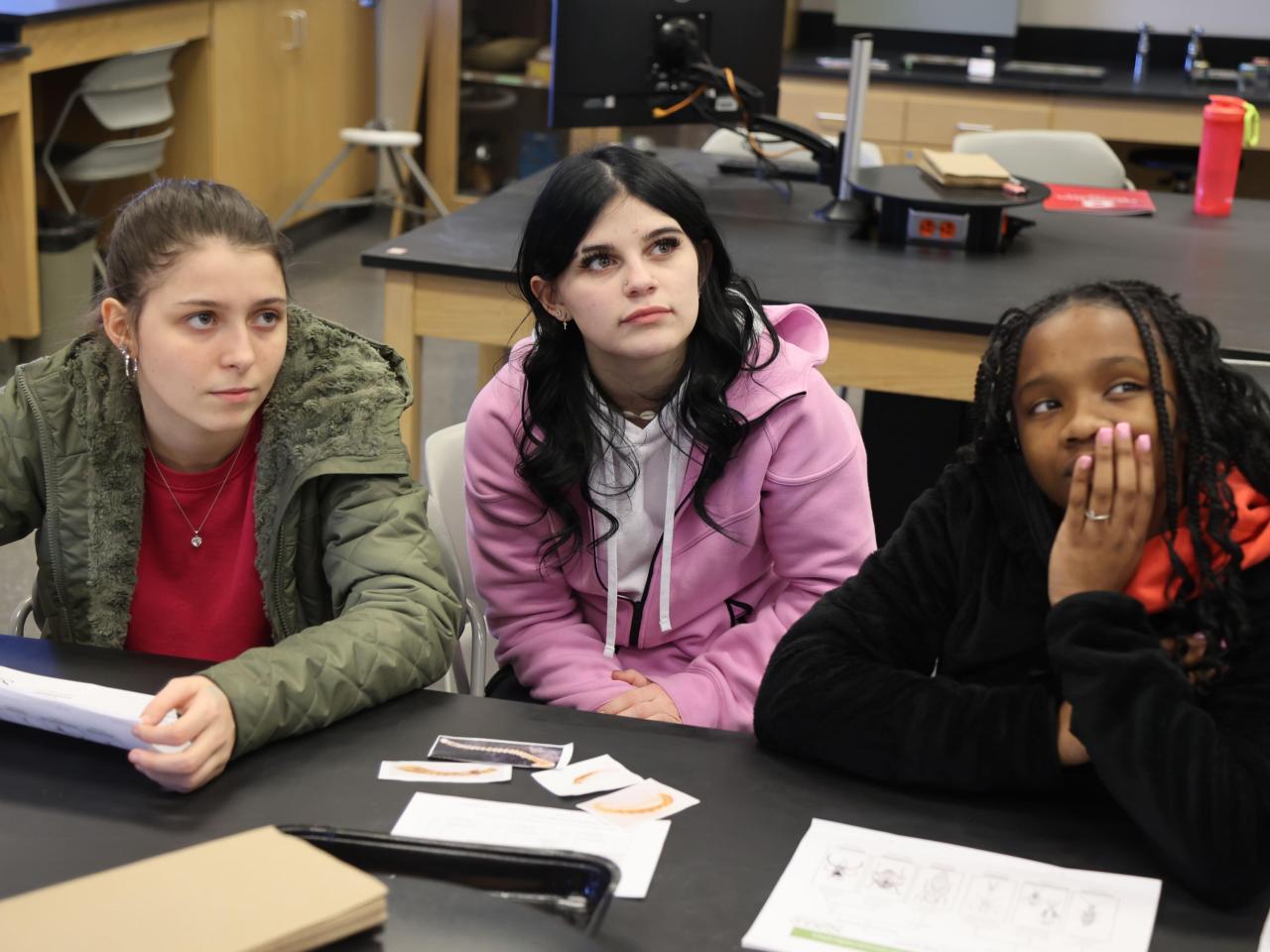Each year, the Fowler Science Series brings middle and high school students of the community to The Ohio State University at Lima to explore the campus and its labs, meet the students and faculty, and dive into an important topic of the day with an expert in the field.
The goal is to help them find a path to a career and life they want, complete with strong analytical skills and the ability to sift through the avalanche of information available to them.
The topic for 2025 is water quality in the Lake Erie watershed. Before jumping into the lake’s algae bloom situation, keynote speaker Dr. Chris Winslow, director of both the Ohio Sea Grant Program and Ohio State’s Stone Laboratory, spent some time discussing the importance of research-based science and how the students could apply it to their lives, regardless of what career path they choose.
“You can do more than just an experiment. You can use that science to change behaviors, to inform the way our agencies manage the landscape and you can even inform federal and state regulations,” Winslow said. “I empower you to take that science that you love and do something with it.”
Beyond what they learn during the visit to campus, diving into a topic with a research expert deepens the students’ experience when they return to their classrooms.
“When the students hear other adults talk about the same thing I've been teaching in class, I think they hear it in a new way,” said Joel Steinmetz, science teacher and science curriculum team leader at Lima Senior High School. “This often sparks new questions and interest and allows future lessons in the classroom to have more value.”
Engaging students with the kind of research-based, STEM information that the Fowler Science Series provides helps them begin building deeper understanding of complex societal issues at a young age.
“Student's being exposed to professionals who are actively engaged in the STEM-related fields puts a reality of options that they may not fully capture through a career exploration exposition,” said Chad Fallis, principal of the South Science and Technology Magnet. “They see, hear, meet and engage with professionals who are asking hard questions of the world and looking for solutions. The inclusion of youth in the discussions that are not heard in echo chambers of public opinion, but grounded in systematic research validates the need for their voice to be heard and engages them in topics that will impact them now and in the upcoming decades.”
